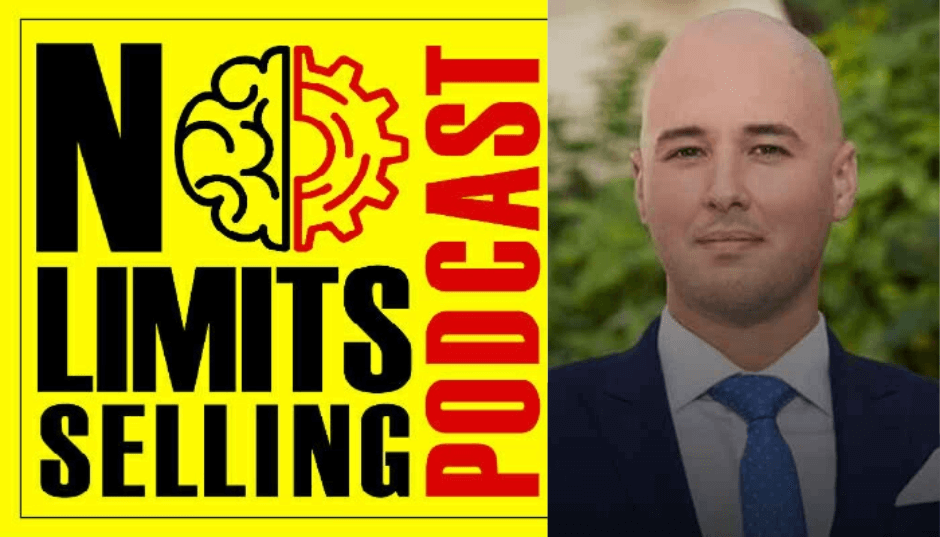Top 3 Prospecting Techniques in Sales
In today’s episode of The No Limits Selling Podcast, we have Adam Sindeband, Team Leader of SindeBand & Djozic Team.
Guest Bio:
Adam Sindeband, a seasoned real estate professional, excels in implementing effective prospecting techniques in sales, which has been pivotal in building lasting relationships with clients. His real estate journey commenced in 2014 at a boutique brokerage firm in New York City. Adam's passion for helping individuals find their dream homes led him to partner with two colleagues, pooling together their collective 35 years of experience in the field. This partnership culminated in the formation of DiGiulio Group Real Estate, which later merged with Oxford Property Group in June 2021. This strategic merger broadened their apartment offerings throughout New York City and equipped them with comprehensive resources to meet diverse client needs. Currently associated with Corcoran, Adam leverages the brand's esteemed reputation and abundant resources to enhance his service quality and results, a testament to his mastery of prospecting techniques in the dynamic real estate market.

Find Adam Sindeband: Website, Twitter, Instagram, LinkedIn
[EDITOR’S NOTE: This podcast is sponsored by No Limits Selling. It is a fun, fast-paced podcast that delivers hard-fought business advice that you can implement today to improve your sales and performance]
Interested In Our Real Estate Coaching Services? Explore Our Website: Link
Feeling Not Well Today? You Can Use Our Mindset Boosters App To amp Up Your Mood: Link
Find us on Social Media:
LinkedIn | Facebook community | Instagram
Like what do you listen to? Subscribe to our podcast!
Ready to become fearless? We can help you become fearless in 60 days so you accomplish more in your career Schedule A 15 min Call with UmarSummary
Introduction
The podcast begins with the host, Umar Hameed, introducing the guest, Adam Sindeband, a realtor in New York City. Adam thanks Umar for having him on the show.
Adam's Background
Adam provides a brief bio about how he got into real estate. He is currently leading a team of eight agents. He mentions that the largest team he has ever run consisted of 15 agents. He emphasizes the importance of being able to give each agent the attention they need to grow and prosper in their business.
Prospecting Techniques in Sales and Strategies
Adam discusses the importance of cold calling and prospecting in the real estate business. He believes that you cannot develop in this business if you're not making those cold calls and attempts. He also emphasizes the importance of having fun in the job, as it can be stressful.
Prospecting Techniques in Sales: Enhancing Team Building and Leadership
Adam talks about the dynamics of his team. He mentions that each agent has different strengths and weaknesses, and he tries to create an open environment where everyone can learn from each other. He also discusses the importance of complementing each other's strengths and weaknesses.
Challenges in Real Estate
Adam identifies one of the common struggles in real estate as connecting with clients on an emotional level. He mentions one of his top agents who is very organized and analytical but needs to work on tapping into his emotional side to connect better with clients.
Conclusion
The podcast ends with Adam expressing his gratitude for being on the show and hoping to chat again. Umar encourages listeners to leave a five-star rating on iTunes if they enjoyed the episode. He also mentions a free mind training course available on his website, nolimitsselling.com, which teaches insights from the world of Neuro-Linguistic Programming.
Faq
What Are Effective Prospecting Techniques in Sales?
How does Adam Sindeband manage his real estate team?
What are some common challenges in real estate as per Adam Sindeband?
What is Adam Sindeband's approach to handling stress in the real estate business?
How does Adam Sindeband help his agents grow in their careers?
What is the role of emotional connection in real estate according to Adam Sindeband?
What is the significance of team dynamics in real estate as discussed by Adam Sindeband?
Don’t miss this opportunity to transform your real estate career with one-on-one coaching. As an experienced real estate coach, I, Umar Hameed, am dedicated to helping you unlock your full potential and achieve your real estate goals. To learn more about who am I and my clients ↓
Follow This Link
If you’re ready to take the next step, book an appointment with me today and begin your journey toward success in the real estate industry.
